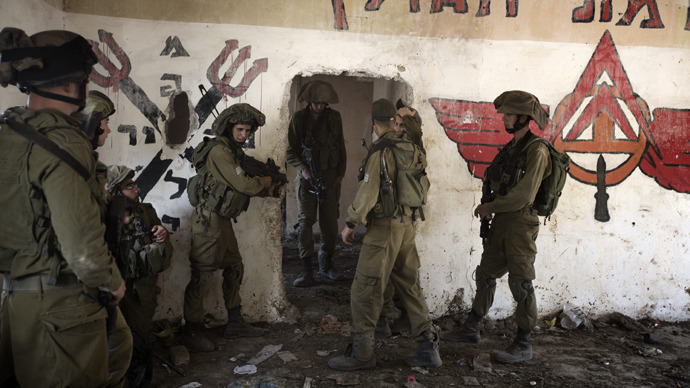'Israeli led quasi-NATO poses grave danger for the Middle East'

Israel has aligned with Arab States to take ‘pre-emptive action against possible Hezbollah retaliation in the context of a larger war’ with Syria and Iran, Jeff Steinberg, editor of Intelligence Review Magazine told RT.
Steinberg added that Israel has basically created a “quasi
NATO” that could within a year be used for “regime change in
Syria.”
RT:Let's start with those reports about the UN
peacekeepers being held by rebels. This is not the first time the
Syrian opposition has held members of the UN. What do you think of
the rebels' tactics?
Jeff Steinberg: Well, the rebels are actually terrorists. Much
of the rebel force, particularly in the north of Syria, is made up
of people who are overtly associated with Al-Qaeda. There’s the
Al-Nusra Front and dozens of other Jihadist organizations. And a
few weeks ago al-Qaeda in Iraq announced their corporate merger, if
you will, with the Al-Nusra Front.
And these are the dominant fighting forces inside Syria at this
point. They receive massive amounts of financing and weapons from
Saudi Arabia, the UAE, and other Persian Gulf countries.
The same way that [Russia’s President] Putin criticizes the West
for referring to Chechen terrorists as “rebels” and “freedom
fighters” – the same is true in Syria. But now, of course, we have
Carla Del Ponte – one of the UN investigators into the use of sarin
gas – saying it’s the rebels who used the sarin gas and not the
Syrian Army.
So, they are terrorists. Therefore, expect the worst kind of
terrorist activities and disrespect for any international law or
human rights.

RT:What kind of signals do these tactics send to the rebels' foreign backers, such as the US?
JS: It’s a terrible embarrassment for the Obama administration right at this moment, and, of course, for people like Senator John McCain and Senator Lindsey Graham who have been demanding US military action in support of the rebels.
RT:Let's now talk about the escalation between Israel and Syria. In the standoff with the Syrian government, just how much is Israel siding with the Sunni Muslim fighters waging a war against President Assad? Are we seeing a very non-traditional alliance here?
JS: Yes, I think that there’s even talk now about an
alliance being referred to as 4 +1. Saudi Arabia, the UAE, Turkey
and Jordan allied with Israel in a military coalition a kind of a
quasi NATO that would be involved not only in the regime change in
Syria, but preparing later this year or early next for a direct
military action against Iran over yet another claim of weapons of
mass destruction that has no coherence with the reality or the
actual evidence.

RT:Israel is now facing the threat of Palestinian
attacks from Syrian territory. Could it have foreseen such
developments when it was carrying out attacks inside
Syria?
JS: From sources that I’ve had direct contact with inside
Israel – actually inside the Ministry of Defense – all of the
actions that they are taking in Syria right now are ostensibly
directed against Hezbollah, weapon stock-piles are all in
expectation that there will be a general regional war in which Iran
becomes the primary target, the US and NATO countries are joined in
along with Israel. And so the Israelis effectively are taking
preventive or pre-emptive action against possible Hezbollah
retaliation in the context of a larger war.
So, the danger here in the Middle East is very grave. And, of
course, a regional conflict in such a crucial part of the world
could very easily get out of control and go much bigger and worse
than even than even that.
The statements, views and opinions expressed in this column are solely those of the author and do not necessarily represent those of RT.












